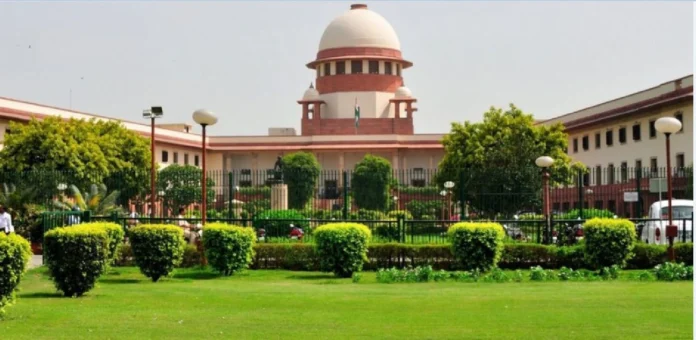By Sujit Bhar
The Supreme Court’s final order, upholding the Calcutta High Court’s verdict of the dismissal of nearly 26,000 West Bengal teachers for cheating and fraud during the selection process, does not come as a surprise. Many of the state’s systems have been corrupted beyond repair by the ruling Trinamool Congress (TMC), led by its iconic Chief Minister Mamata Banerjee, and the price is being paid by the few honest ones among the 25,753 teachers and non-teaching staff in state-run and state-aided schools who have faced the Court’s wrath.
The case had its seed in allegations of irregularities in the 2016 recruitment process conducted by the West Bengal School Service Commission. A massive number of 23 lakh candidates had competed for just 24,640 posts, and while some say that the corrupt ones numbered just around 5,000, this has never been proved. Hence, the entire selection process has been sent to the bin.
The top court has, however, set aside one part of the earlier order in which the High Court had asked that all these teachers must not only return their salaries within four weeks, and tasked district magistrates to collect the monies, but also added a 12 percent interest. The Supreme Court has ordered that no salary return will be required from already appointed staff. It may be recalled that the High Court had made an exception in its order, ensuring that one of the appointees, Soma Das, who is undergoing cancer treatment, retains her job on humanitarian grounds.
The Supreme Court bench of Chief Justice Sanjiv Khanna and Justice PV Sanjay Kumar’s observations during the verdict were strong. The bench said: “We find no reason to interfere with the decision of the High Court that the services of tainted candidates and their appointment should be terminated. Since their appointment was by fraud, this amounts to cheating.”
The High Court had found serious irregularities in the examination process, where blank OMR sheets had been submitted and accepted. The state had moved the top court against the High Court verdict, and on May 7 last year, the Supreme Court had stayed the High Court’s order, even while it allowed the Central Bureau of Investigation (CBI) to proceed with its probe in the matter.
The fallout of this verdict is serious on several counts. The first will be the disastrous condition of those candidates who had sat honestly and completed all tasks diligently. If the CBI investigation has found no sign of any honest attempt then the probe has not been exhaustive. This order would possibly destroy those honest families for no fault of theirs. There is always collateral damage, it is said, when a large movement takes place. However, there are also checks and balances that may have been used by the CBI and the entire picture should not have been painted with the same broad brush.
Secondly, one must realise that even this punitive effect will not destroy the evil system. The politics of corruption is often more rewarding than any straight, honest approach could afford to yield. Hence this would offer only a temporary setback for a dispensation which has, in the recent past, overcome even an inhumane rape and murder of an on-duty postgraduate trainee lady doctor within the premises of a state-run hospital. That horrific incident was slow-poisoned with political interference—in this the CPI(M) and the BJP had their fair share of obtuse interference—and ultimately killed, with one deranged civic volunteer being singled out for punitive treatment. The main perpetrators of the crime still proudly parade the streets of Kolkata.
Then there is the case of some strange intransigence within the judiciary. It was difficult to make the legal system believe that when the School Service Commission case first reached the High Court and reached the bench of one judge, Justice Abhijit Gangopadhyay, the person in question was already a BJP stooge, taking on a TMC case.
As it transpired soon enough, that the sitting judge of the Calcutta High Court publicly expressed partisan political views, then quit his job, joined the BJP, and stood for election. It is immaterial that he even won. The material fact before any legal system would be how this judge’s deduction of the case was taken at face value. Was it possible, especially in this case, that some acts of omission and commission might have happened?
Justice Gangopadhyay had been handling the School Service Commission case. The case was taken away from him, but not because any political affiliation signals by this man had come to the fore. The case was taken away from him, because of his objectionable behaviour that did not go down well with the apex court. His acts definitely lowered the prestige and hit at the integrity of the Supreme Court bench (acts that included a rather biased and damaging interview to the media) and also because of his openly hitting out at a brother judge.
At that time, the Supreme Court did not find this man fit enough to handle the case anymore. The top court had advised the then Chief Justice of the Calcutta High Court, Justice TS Sivagnanam, to form a division bench and hand over the case documents and the case to it. This bench, comprising Justices Debangsu Basak and Md Shabbar Rashidi, had delivered its verdict, that too, at the door step of a high tension election.
Within such a chaotic atmosphere, the CBI started and concluded an investigation that, as it now seems, was hardly exhaustive.
The entire issue can, and will be transported to political forums, leaving the schools and the students to bear the brunt of all-round inefficiencies.


